Editor’s note: This is a guest post by serial entrepreneur and marketing executive April Dunford who is currently the head of Enterprise Market Strategy for Huawei. April specializes in brining new products to market including messaging, positioning, market strategy, go-to-market planning and lead generation. She is one of the leading B2B/enterprise marketers in the world and we’re really lucky to be able to share here content with you. Follow her on Twitter @aprildunford or RocketWatcher.com. This post was originally published in January 4, 2011 on RocketWatcher.com.
Back when I was running my consulting business I published a marketing framework that I used as a tool to explain to startups the types of things that I could help them with. I thought it would be useful for startup marketing folks as a guide and I think it has been – it continues to be one of the most popular posts on this site.
Since then, I’ve gotten a lot of smart feedback on the framework and I’m also back to working inside a company again so I thought it would be interesting to revisit the framework.
Assumptions
As I explained earlier, this framework doesn’t intend to cover Product Management (thePragmatic Marketing Framework does a good job of that) but rather the intention was to look at it from a purely marketing point of view. This Framework makes the assumption that you have a product in market, you feel fairly confident that you have a good fit between your market and your offering and you are ready to invest in lead generation. If you aren’t there yet, there is a lot here that you won’t need to (and more importantly, shouldn’t) worry about yet. Lastly, my background is more Business to Business marketing so like everything else on this site, this has a B2B slant to it. That said, I think most of it is very applicable to a B2C startup.

Market Knowledge
Segments – Based on your interaction with early customers, these are the segments that have the most affinity for your offering and are the target of your marketing efforts. These need to be well defined and very specific. I’ve had folks ask me where buyer/influencer personas fit and I include those here as part of what you need to understand about your segments.
Market Needs – From your experience with early customers you will be able to articulate the unmet needs in the market related to your segments (and beyond).
Key Points of Value – These are the most critical key differentiated points of value that your product offers. This is not a long list of features but rather small number of key attributes that customers in your segment love about your product. This is important for startups in particular to understand the real essence of why people buy your solution and it has a big impact on messaging, campaigns, sales strategy, etc.
Competitive Alternatives – These are the alternative ways that prospects in your segments can attempt to address their needs without your product/service. These may be competitive offerings, features or pieces of solutions in other spaces or the always fearsome “do nothing”.
Business Strategy
Business Model – This describes how the company makes money from the offering.
Sales Process and Strategy – The sales strategy is how the company will sell the product (including the channels if applicable). The Sales Process is the detailed step by step process that a prospect goes through on the way to becoming a customer. It’s important to note that this process starts long before a prospect interacts with a sales person and starts in the information gathering phase.
Market Strategy – The market strategy is a higher level view of how the company plans to scale in the market from early adopters to a broader market, including the segments to be targeted and in what order. (in Crossing the Chasm, this would be the description of your lead pin and the adjacent pins)
Partner Strategy – This box is new from the last version of the framework. I had previously included indirect sales channels in “Sales Strategy” but there are more reasons to partner than just sales (sometimes it’s for marketing purposes, or to provide services for example) and since Marketing is usually responsible for this at a startup I thought it needed to be included.
Tactics
Outbound Lead Generation – On the original Framework I simply had one box for “Lead Generation”. I’m deeply involved in Lead Generation with my current role (something I was less focused on as a consultant) and I started to think that such an important set of tasks deserved to be dissected a bit. Onbound Lead Generation in this framework is the plan including budgeting and task execution for lead generation tactics that involve “pushing” marketing messages out to an audience. This includes traditional marketing tactics such as events, advertising, telemarketing and traditional email marketing.
Inbound Lead Generation – This box is similar to the above box except that it includes that set of tactics that you are running that are focused on attracting prospects to you (rather than pushing messages out to prospects). This includes blogging, social media marketing, content marketing, and organic search tactics.
Retention and Engagement – The plan and budget for tactics aimed at retaining existing customers (really important for SaaS offerings) and engaging existing customers both for retention but also for improving customer satisfaction, cross-selling and up-selling.
Visibility – This is the bucket for all tactics related to ensuring that non-users of the product can observe that others are using it. This includes product features that encourage people invite their friends or display to a person’s network some facet of using the product, referral incentives, website badges, shareable content, reviews and awards, customer testimonials and success marketing, etc. (I talk about this in Startup Marketing 101)
Content
Messaging – This includes the company messaging, product value proposition, company and offering stories, responses to common questions, objection handling and reassurances for perceived risks.
Marketing Content – In the original version of the Framework, I had a single box called “Content Strategy”. I believe that the importance of content is growing to the extent that I think this deserves more attention. Marketing Content should still be planned out in a content strategy that will lay out what content will get created and for which purposes. This will include blogs, video, podcasts, whitepapers and ebooks, research and data analysis, press releases, shared presentations, and anything else that is informative and helpful to prospects.
Customer Content – This is a new box I added that is specifically focused on building a plan for content for customers (as opposed to prospects). The purpose of this content is customer retention and engagement (and it’s not an accident that this box sits next to that one in the Framework). Again, for SaaS type businesses, I believe that retention is increasingly important and marketing should be putting more energy and effort into “marketing” to their existing customer base.
Media/Influencer Outreach – Actions, programs and tactics related to working with reporters, analysts, writers, bloggers and other influencers.
Optimization & Market Learning
Funnel Optimization – The ongoing process of tracking and analyzing each stage of the sales funnel with the goal of making incremental improvements. (I did a post on some B2B metrics that I track to look at funnel)
Results Tracking – This was ROI Tracking in the last version but I broadened it out to Results Tracking. Obviously for each item of marketing spend, tracking the return on that investment with the goal of doing more of what works and less of what doesn’t is still something every startup marketer needs to do but there are other metrics that you will be tracking as well that aren’t necessarily “ROI” numbers per se so I broadened this one.
Customer Learning – The ongoing process of meeting with customers and testing the assumptions you have about their needs, environment, information sources and influencers, competitive alternatives, market trends, etc., capturing that information and feeding it back to the rest of the organization.
Editor’s note: This is a guest post by serial entrepreneur and marketing executive April Dunford who is currently the head of Enterprise Market Strategy for Huawei. April specializes in brining new products to market including messaging, positioning, market strategy, go-to-market planning and lead generation. She is one of the leading B2B/enterprise marketers in the world and we’re really lucky to be able to share here content with you. Follow her on Twitter @aprildunford or RocketWatcher.com. This post was originally published in January 4, 2011 on RocketWatcher.com.
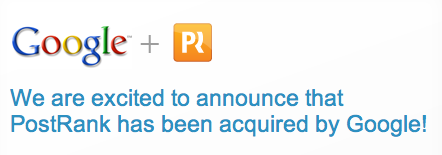







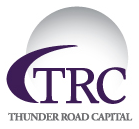

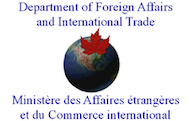


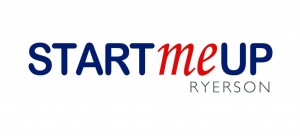


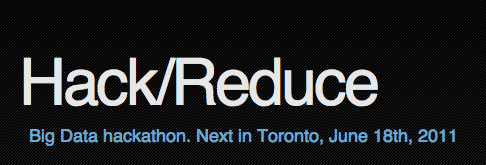



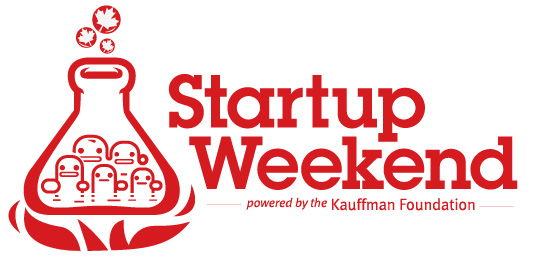 This June’s event will have a strong focus on lean startup principles. A fantastic set of speakers are lined up to provide practical advice so you can take what you learn well beyond the weekend itself. While there is no “right” way to start a company, Startup Weekend is here to help provide you with as many tools and connections as possible to help you succeed.
This June’s event will have a strong focus on lean startup principles. A fantastic set of speakers are lined up to provide practical advice so you can take what you learn well beyond the weekend itself. While there is no “right” way to start a company, Startup Weekend is here to help provide you with as many tools and connections as possible to help you succeed.